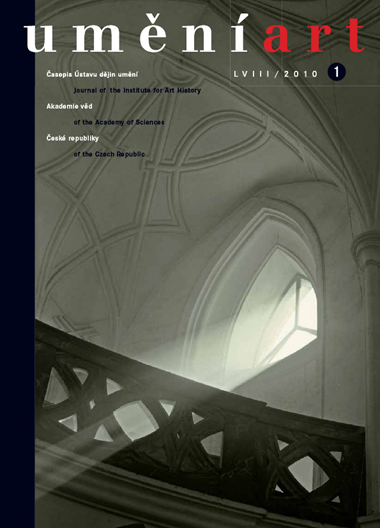Helena Čapková
Vojnina - záhada několika dopisů. Korespondence malíře Vojtěcha Chytila s architektem Bedřichem Feuersteinem
Recently discovered correspondence between the architect Bedřich Feuerstein and the painter Vojtěch Chytil provides a new look at Chytil's activities as an art collector in China and at his exhibition work, in particular two exhibitions in London held in 1933 and 1934. Part of the reason these letters remained hidden in archives is that the sender was a mystery, but it was also because Feuerstein's collecting and travels to China had yet to be thoroughly studied. The correspondence adds the missing stone to the mosaic of Feuerstein's international career, but it also fills in the intricate circumstances surrounding Chytil's activities. In addition to shedding light on his relationship to the famous Chinese painter Qi Baishi and the state of his great collection, the correspondence also provides information on Chytil's exhibitions in Czechoslovakia and abroad. The research revealed that Chytil was the first collector to show contemporary Chinese painting in Great Britain and that he did so twice. Chytil's exhibition and collecting work was thus of much more fundamental importance than was initially assumed, and he rightly deserves recognition for his role in the introduction and promotion of Chinese modern art in Europe and even worldwide. An analysis of Feuerstein's and later Chytil's activities also showed that groups of Chinese, Japanese, and foreigners working in the Far East formed - at least in the interwar years - densely interlaced networks, and these cannot be studied by limiting the scope of view to just the territory of one nation-state or to individual styles or schools. The letters paint a contemporary picture of life in China in the early 1930s within the community of artists and foreigners living in Peking, but they also reveal Chytil as a man with a sense of humour.
Full-text in the Digital Library of the Czech Academy of Sciences:
https://kramerius.lib.cas.cz/uuid/uuid:b252cc62-d430-6949-a4f6-a4d7c5bdebeb
< back

